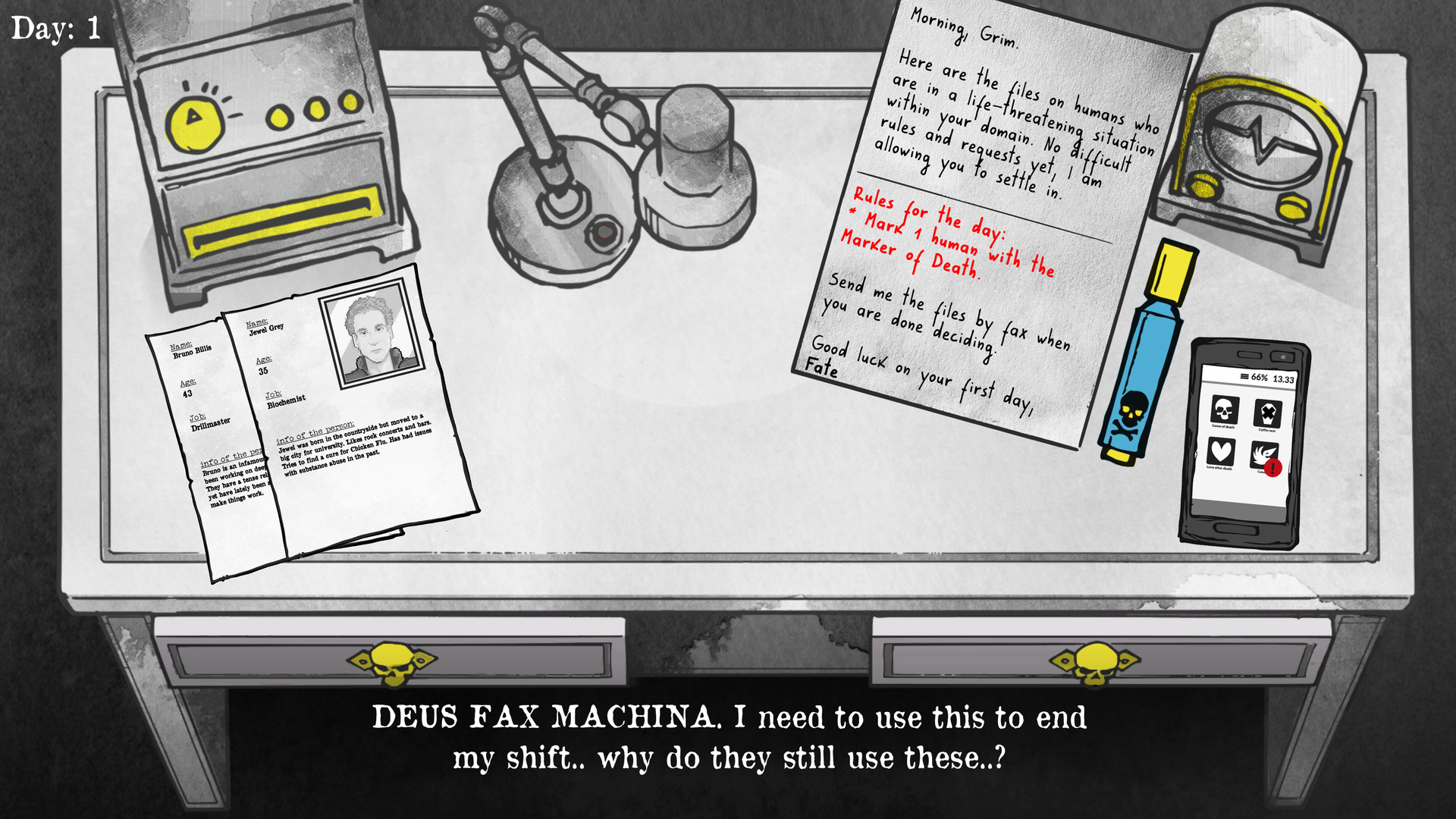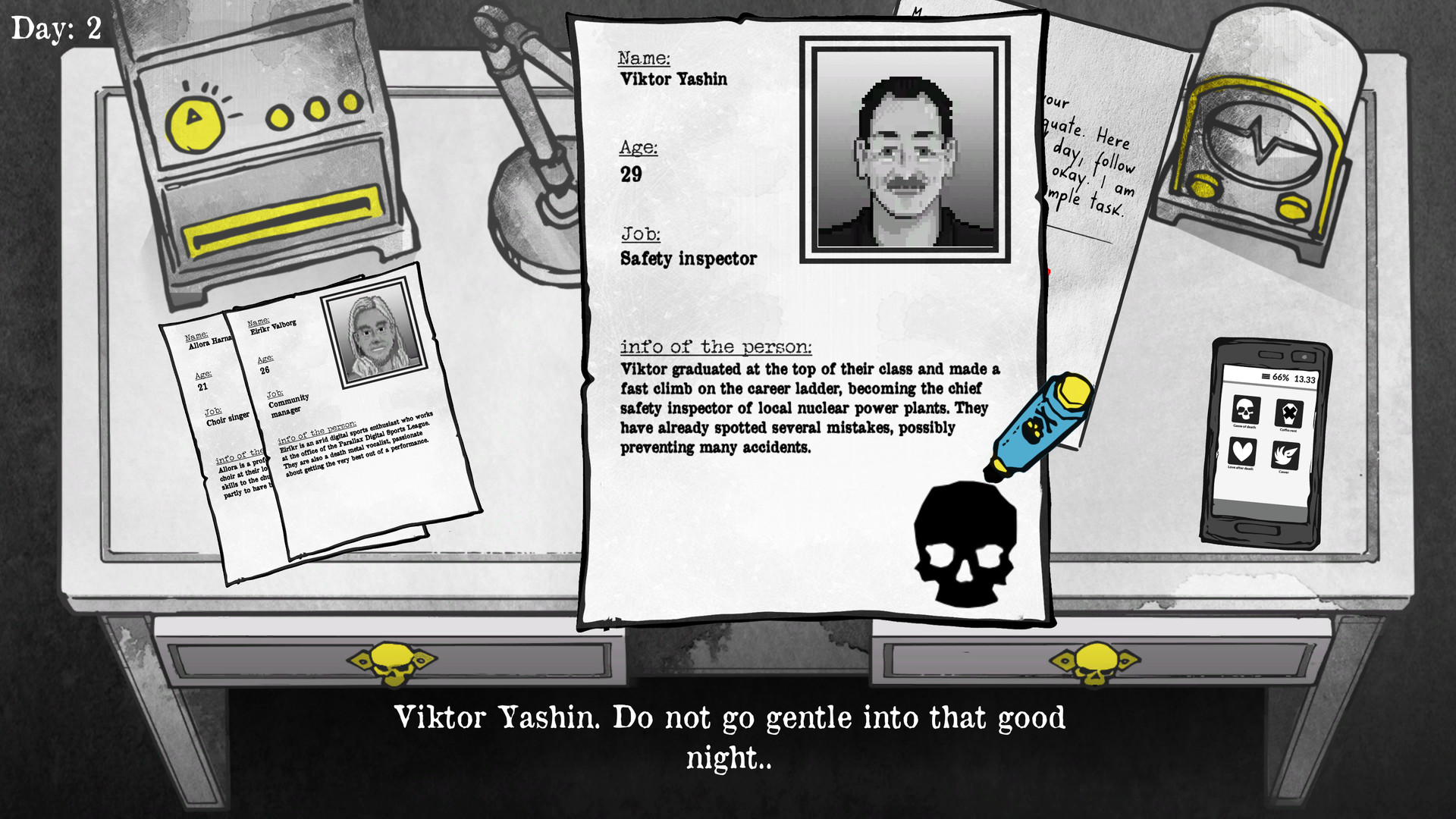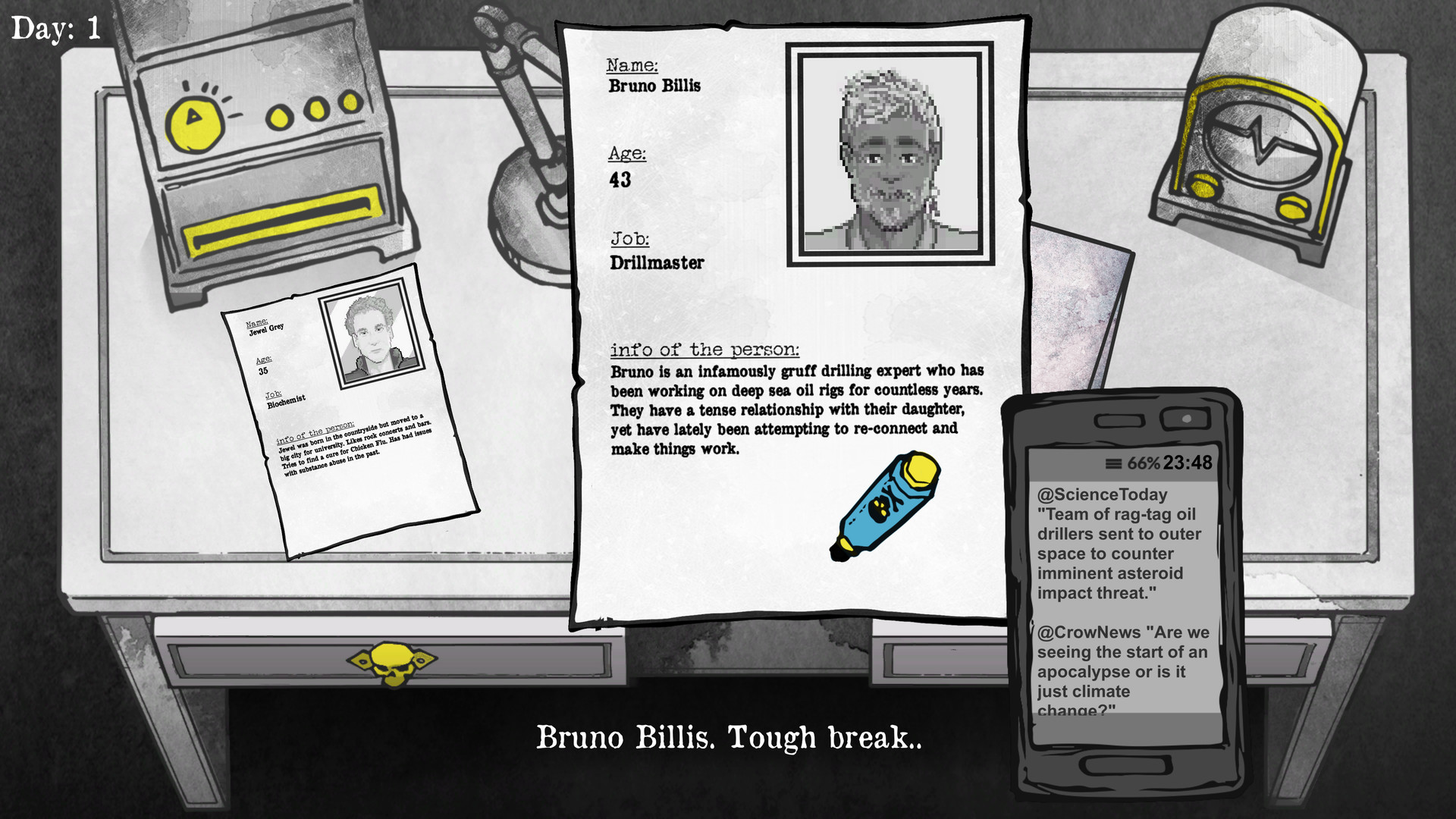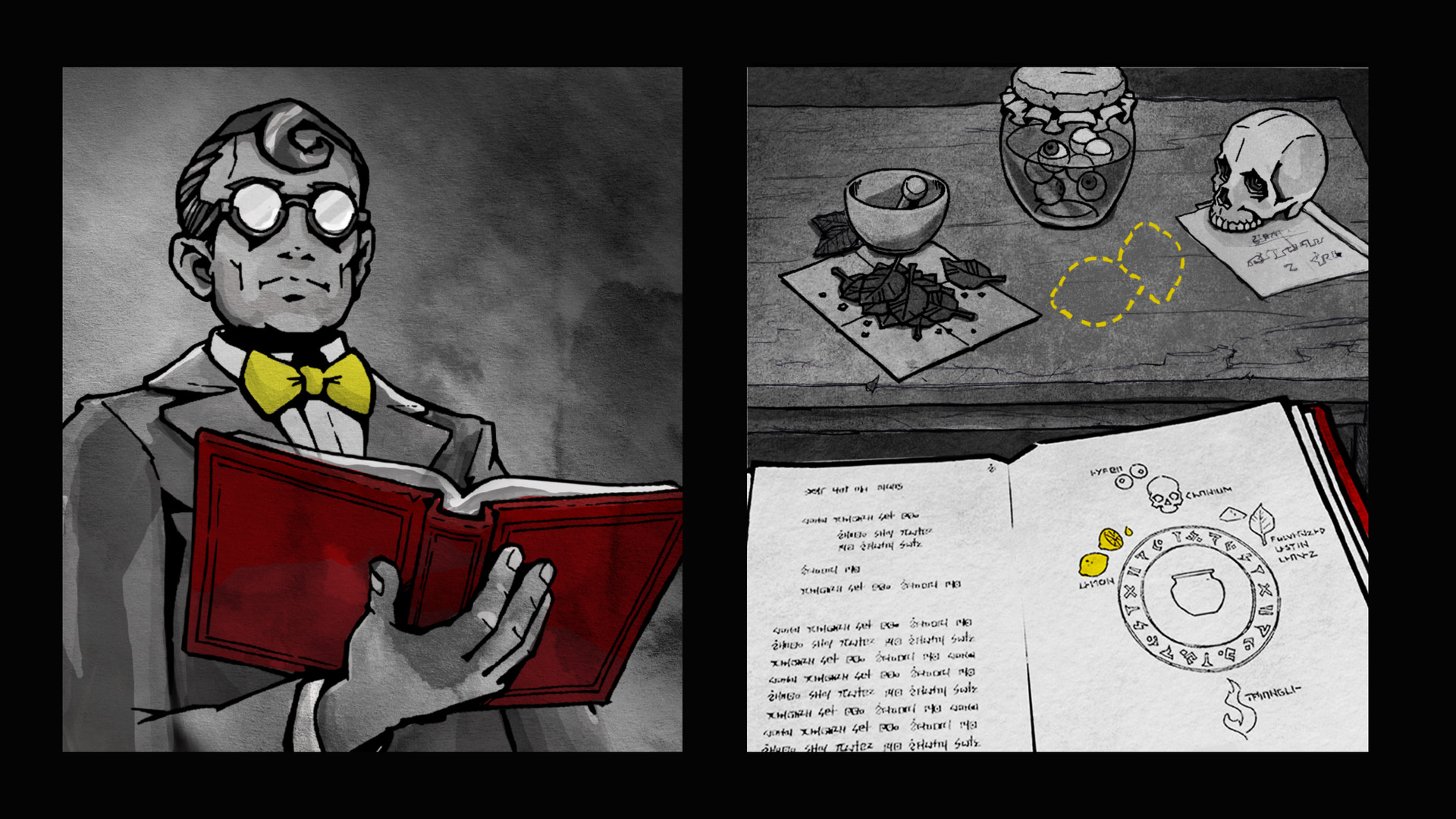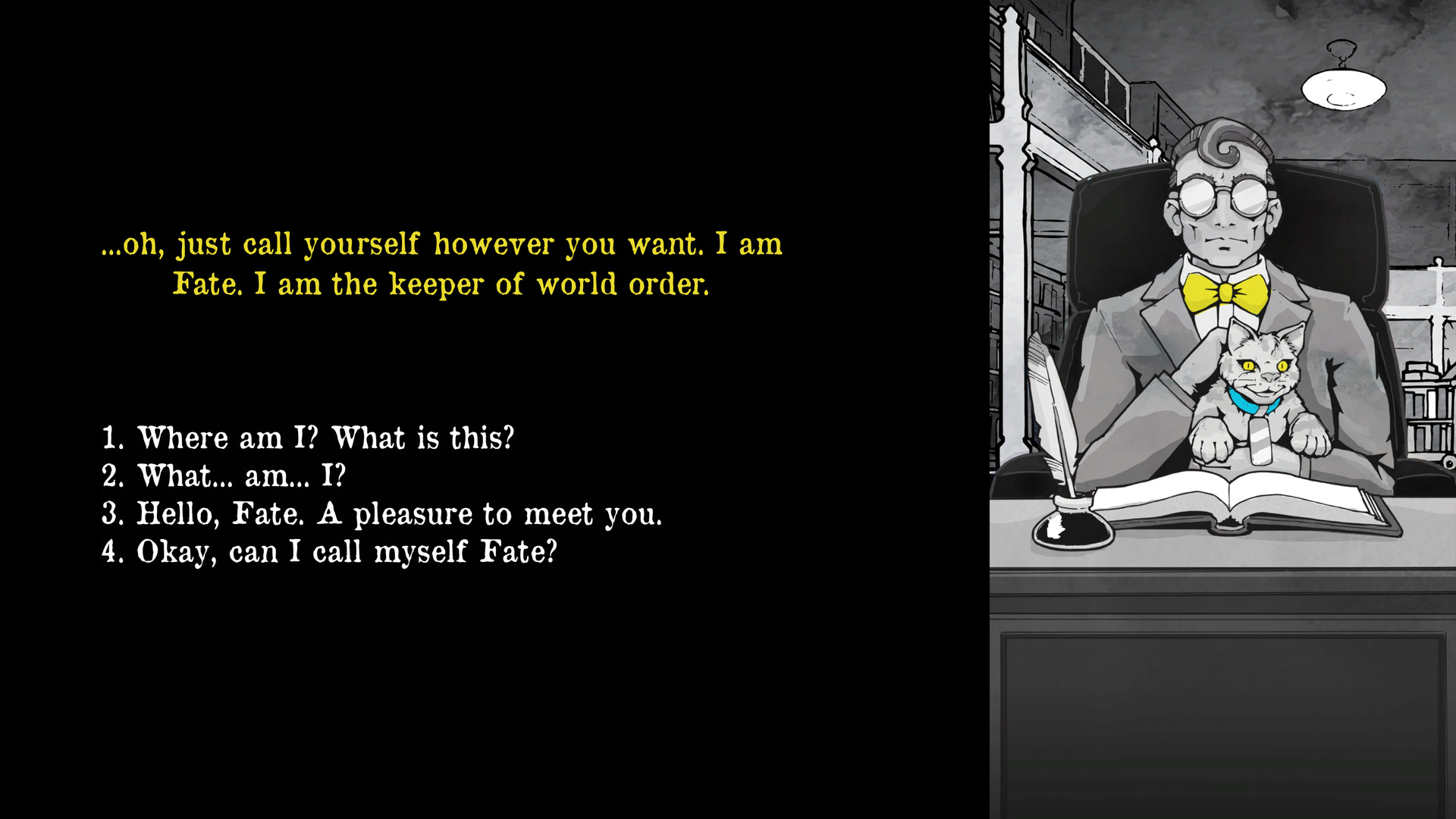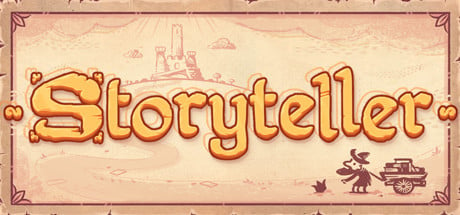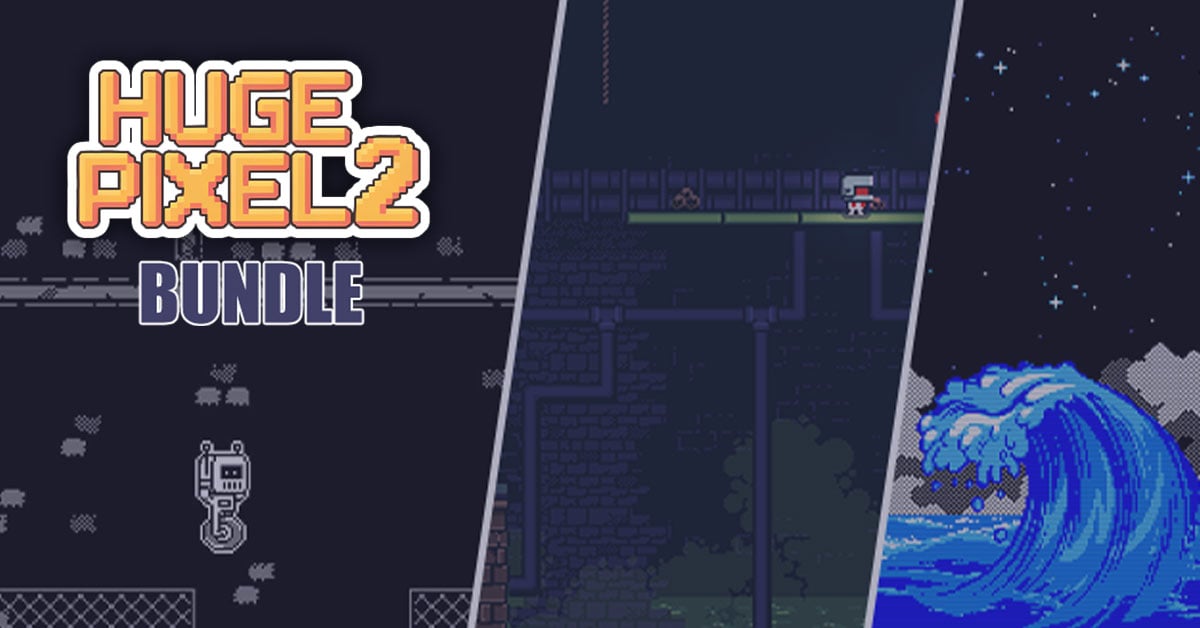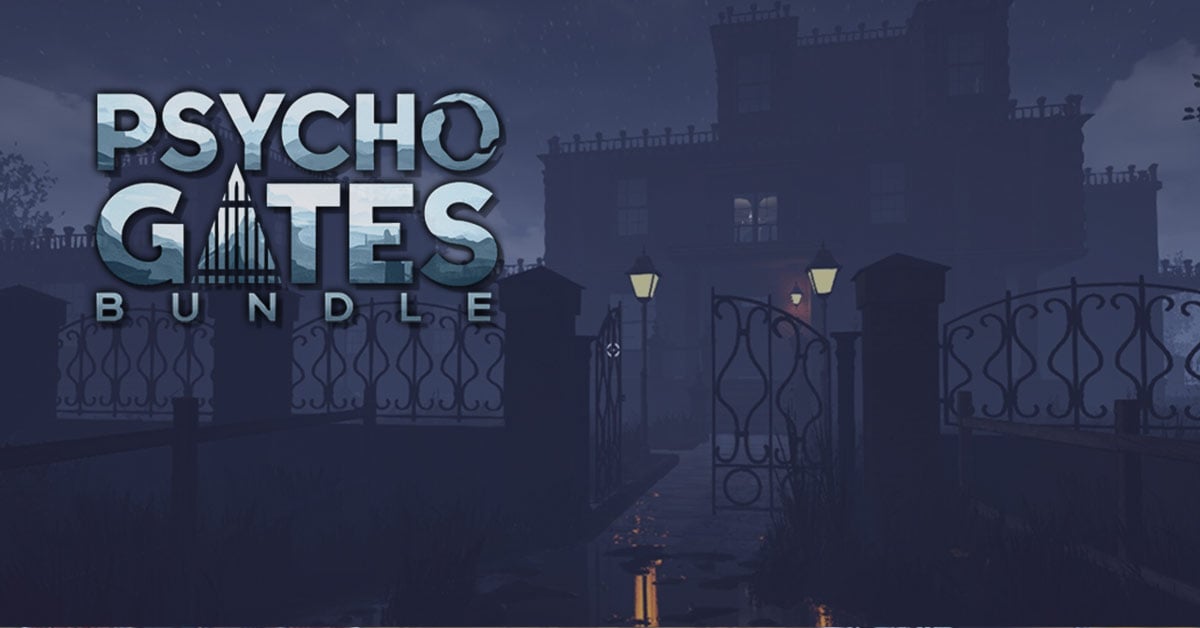Meet your Fate.
Coming February 2020.
Don't forget to wishlist us to stay up-to-date when the game is released!
Hello, ghouls!

It's finally time for the writer to write something to this devlog. So,I'm the lead writer for Death and Taxes, and I guess I have a few words about writing. Unfortunately, I have little original to say. If anyone wishes to become an author of any type - novels,(screen)plays, video games - it still generally revolves around the same banal truths that almost every author will note:
1) Read a lot, and diversify. If you wish to write genre fiction, it's fine to read other works in the genre, but you really should just be reading a wide variety of books and topics. Besides, integrating techniques and styles outside the useful (but too comfortable) genre tropes may come in handy.
2) Write constantly. A lot comes down to getting into the routine of writing.One has to keep at it, every single day - when feeling good,motivated and inspired, when feeling bad and tired. At least get something down, even if it's not what you were supposed to write, but some sort of an experiment. There's always the fun of editing later!
Honestly,for a more in-depth and helpful creation guide I'd at least recommend listening to the Start With This podcast:
[u]http://www.nightvalepresents.com/startwiththis [/u]
Or checking out Brandon Sanderson's writing courses , available on YouTube. It's all about the toolkit!
Writing is a craft, a skill to hone, not some sort of a magical innate ability granted upon you by Higher Beings. Writing is a GRIND. You grind at it until your fingers and eyes bleed!
Gamewriting is an interesting beast to tackle. Here I've got an example of how education matters - not "a specific education"; it's more a lesson on how you can't predict the future, and thus can't know what random things may suddenly come in useful down the line. I have a background in literary and cultural theory and, as such, I'm quite familiar with all that postmodern and poststructuralist theory- turns out, if you're already used to concepts like rhizomes and hypertexts and such, and have done a bunch of examinations of the inner frameworks of novels, learning a 'visual programming' text creation program like Articy Draft comes really dang quickly.

The way a game dialogue can grow like a rhizome (that you somehow try to control)... it's kinda like a practical application of initially far more abstract philosophical concepts. At the same time, you have an understanding of structures and restrictions. Writing in Draft clearly differs from writing in Word (or any other text program),because of how the blank page looks and feels - already this space structures text differently. Restriction are great for force you into being creative.

A dialogue in Draft is composed of fragments that fit a certain amount of text(you can enlarge any text box, but I'd recommend keeping it at some specifically chosen sizes, so you have a constant clear visual understanding of how much text any fragment contains). The fragmentary nature of the flow also creates its own rhythm. In a sense, it kinda ends up feeling more like theatre/screenplay writing instead of a novel.And... you finally get to export the dialogue into the game, which itself has a specific look and design for the dialogue engine/window... and you see that everything looks wrong. And then you give up and cry.

Until next time!
Stay frosty!
Grind those words out!
- tshiifMrten
Minimum Setup
- OS: Ubuntu 16.04+ or equivalent
- Processor: i3 or equivalentMemory: 2 GB RAM
- Memory: 2 GB RAM
- Graphics: Integrated graphics or GPU with atleast 512 MB of VRAM
- Storage: 500 MB available space
Recommended Setup
- OS: Ubuntu 16.04+ or equivalent
- Processor: i3 or equivalentMemory: 4 GB RAM
- Graphics: Integrated graphics or GPU with atleast 512 MB of VRAM
- Storage: 500 MB available space
[ 6381 ]
[ 5876 ]
[ 1265 ]
[ 2018 ]
[ 986 ]

